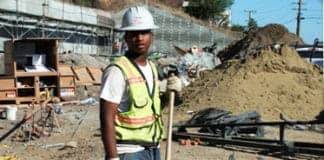Tags World Health Organization
Tag: World Health Organization
Haiti: UN peacekeepers still not screened for cholera despite causing outbreak
It has been four years since an earthquake devastated the small country of Haiti. More than three years have elapsed since a U.N. peacekeeping unit from Nepal introduced cholera to Haiti. Despite telling CNN otherwise, the U.N. is not taking steps to ensure its peacekeepers do not carry cholera from country to country.
Invisible bodies
What are the effects of long-term incarceration on prisoners? In a country where mass incarceration has become the norm, what responsibilities do the state and the community have to prisoners and to protecting some of their most basic freedoms – access to health and freedom from torture being chief among them?
UN capitalizing on cholera, playing both arsonist and fireman
“Haiti may have many problems but until 2010 cholera was not one of them. In fact, the country had no known history of the disease at all,” the Al Jazeera host explains. In October 2010, the first of now 8,000 Haitians died of cholera introduced to Haiti by U.N. peacekeeping troops from Nepal and the U.N.’s negligence in allowing their untreated waste to poison a major river.
Call the doctor: Walmart needs urgent care for a bad case...
Walmart released a video for their back-to-school campaign series titled “Urgent Care” that features three teenage boys trying to identify an unknown skin condition. One boy browses a “Web MD” page on leprosy, asking if the boy with symptoms has “been in the Congo recently.”
Chernobyl: Consequences of the catastrophe 25 years later
Nuclear fallout knows no state or national boundaries and will contribute to increase in illnesses, decrease in intelligence and in instability throughout the world. No country can maintain itself if its citizens are economically, intellectually, politically and socially impoverished. Given the continuing and known problems caused by the Chernobyl catastrophe, we must ask ourselves: Before we commit ourselves to economic and technological support of nuclear energy, who, what and where are we willing to sacrifice and for how long?
How does Cuba do it?
“Cuba has the lowest [infant] mortality rate in the Americas, in spite of the economic blockade imposed against it by the U.S. for more than five decades,” announced Granma newspaper on Jan. 3.
Dust is dangerous
In 2001 I founded the Radiological Subcommittee of the Hunters Point Shipyard. I became obsessed by the potential for one of the worst toxic environmental impacts to the human cell being realized with this development project on a federal Superfund site: Small radioactive particles called radionuclides becoming airborne on dust and breathed into the lungs and circulatory system of children.
John Prendergast’s selective outrage at African crimes
If a person really cared about human suffering – torture, mass rape, pillage, torching of homes with people alive inside, targeted rapes to spread HIV/AIDS, burying people alive, chopping off of limbs – then such a person would condemn these acts wherever they may occur and demand that the perpetrators of the crimes be brought to justice.
Haiti! … in one form or another
They shoot us, then display us as looters. / Then they bring in the U.N. and the rest of the U.S. friends, / Blackwater forces who now go under the new name Xe, / Who, like a fatal disease, once they get in, they don’t / Never plan on leaving. ... / Haiti! The land of my brotherman … and sister woman, / The ones that kicked Napolean’s ass, / The land of sugar cane and Africans, / The land in which the enslaved revolt.





